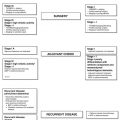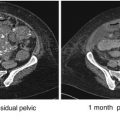Gynecological cancer trial groups represented in European Network of Gynecological Oncological Trial Groups
Study group (country)
AGO – Austria, Arbeitsgemeinschaft Gynäkologische Onkologie Austria
AGO Study Group, Arbeitsgemeinschaft Gynäkologische Onkologie Studiengruppe, Germany
BGOG, Belgian Gynaecological Oncology Group
CEEGOG, Central and Eastern Gynaecological Oncology Group, Czech Republic, Slovakia, Poland
DGOG, The Dutch Gynecological Oncology Group, The Netherlands
EORTC-GCG, European Organisation for Research and Treatment of Cancer-Gynaecological Cancer Group
GEICO, Grupo Español de Investigación en Cáncer de Ovario, Spain
GINECO, Groupe d’Investigateurs Nationaux pour l’Etude des Cancers Ovariens, France
GROINS, GROningen INternational Study on Sentinel nodes in vulvar cancer, The Netherlands
HeCOG, Hellenic Cooperative Oncology Group, Greece
ICORG, The All Ireland Cooperative Oncology Research Group
ISGO, Israeli Society of Gynecologic Oncology
MaNGO, Mario Negri Gynecologic Oncology group, Italy
MITO, Multicenter Italian Trials in Ovarian Cancer, Italy
NCRI-MRC, National Cancer Research Institute-Medical Research Council, UK
NOGGO, North-Eastern German Society of Gynaecologic Oncology
NSGO, Nordic Society of Gynecologic Oncology
SAKK, Switzerland Group for Clinical Research
SGCTGC, Scottish Gynaecologic Cancer Trials Group, Scotland
TRSGO, Turkish Society of Gynecologic Oncology
ENGOT coordinates and promotes clinical trials within Europe in patients with gynecological cancer trial groups. This coordination is particularly relevant for academic trials, translational research, research on rare diseases, and for clinical trials sponsored by the industry to perform multinational studies in Europe. ENGOT also stimulates young investigators to be involved in clinical trials and promotes the creation of new clinical study groups in parts of Europe where ENGOT is not yet represented.
The ENGOT Mission statement is the following:
ENGOT is a platform that guarantees that the European spirit and culture is incorporated into the medical progress in gynecological oncology and that all European patients and countries can participate in an active way in clinical research and progress.
The ultimate goal is to bring the best treatment to gynecological cancer patients through the best science and enabling every patient in every European country to access a clinical trial.
In 2010, ENGOT published the requirements for trials between the academic ENGOT and pharmaceutical companies [6], and this paper has been recently updated in 2015 [7]. In this paper, ENGOT defined the following items: development of the protocol, statistical analysis, the ownership of the database, the development of case report forms, sponsorship of the trial, monitoring of the trial, publication rules, participation of investigators from non-European countries, appointment of the independent data monitoring committee, and the standard operating procedures for trials between ENGOT and the industry. The three possible models for cooperation between the ENGOT lead group of the trial and industry are shown in the table below.
Models of cooperation between ENGOT groups (lead group) and industry according to option chosen for handling the database and statistical and publications rules |
|---|
Database (DB) could be organized as |
Option A: DB itself at the academic lead group (1st choice) |
Audits by company or company assigned auditors |
Transfer of database for registration issues and analysis to the company |
Option B: DB at CRO and CRO is contracted by the academic lead group (2nd choice) |
Audits by company and by lead study group |
Installation of SOPs for the respective protocol and information system for any violation to the sponsor |
Transfer of the complete database to lead study group for scientific analysis and to company for registration purposes |
Option C: DB at CRO and CRO is contracted by industry (3rd choice) |
Quality assurance and certified database software with 100% tracing of any access or changes made |
Audits by study group or study group assigned auditors |
Installation of SOPs for the respective protocol and information system for any violation to the lead study group |
Transfer of the complete database for further scientific evaluations to the lead study group after final analysis of predefined endpoints |
Statistical and publications rules |
Lead Study group performs independent analysis of the complete DB for primary and secondary endpoints |
The DB may be used later for further meta-analyses or subgroup analyses of the study group or within an intergroup consortium |
The publication is the sole responsibility of the lead study group |
The company may comment within a predefined period but cannot prohibit any publication |
ENGOT has also published a roadmap and a charter for GYN trials performed in Europe [8, 9]. The aim of this roadmap is to facilitate cooperation between the different ENGOT groups, to clarify the role of the leading group, to determine the publication rules, to provide templates for intergroup contracts and contracts between academic groups and the pharmaceutical industry, and to determine the communication flow during ENGOT trials. This roadmap and charter will facilitate the performance of ENGOT studies and also improve the speed of starting ENGOT trials.
Stay updated, free articles. Join our Telegram channel

Full access? Get Clinical Tree





